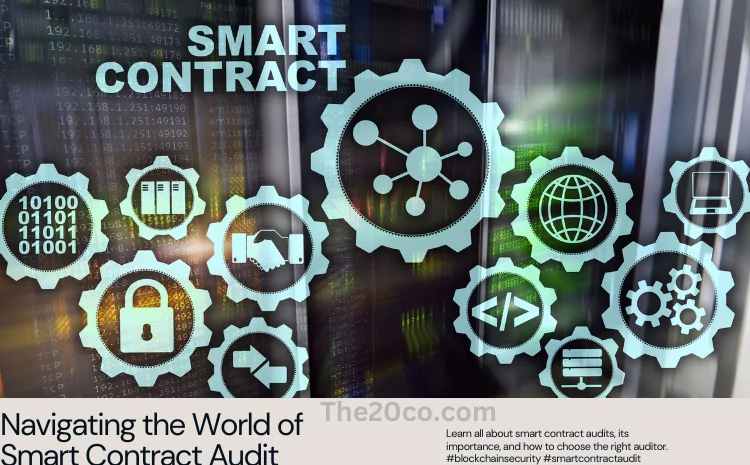Smart contracts have revolutionized the landscape of blockchain technology, providing decentralized, transparent, and automated solutions across various industries. However, with great power comes great responsibility, and ensuring the security of these self-executing contracts is paramount. This article delves into the intricate world of smart contract audits, exploring their significance, the audit process, and the vital role of professional smart contract audit service, emphasizing why every developer and blockchain enthusiast should understand and implement robust auditing practices.
Smart Contract Audit Journey: An In-Depth Exploration
Basics of Smart Contract Audits
What is a Smart Contract Audit?
Smart contract audits involve a comprehensive examination of a contract’s code to identify and rectify security vulnerabilities. These audits are crucial to maintaining the integrity and security of decentralized applications (DApps) and protocols.
Why is a Smart Contract Audit Essential?
In the rapidly evolving blockchain space, security breaches can have catastrophic consequences. A smart contract audit acts as a proactive measure, ensuring that vulnerabilities are identified and mitigated before deployment, safeguarding both developers and users.
Auditing Process Unveiled
How Does the Smart Contract Audit Process Work?
The audit process is a meticulous journey that combines manual and automated techniques to scrutinize every line of code. From initial assessment to the final report, auditors must leave no stone unturned to guarantee the smart contract’s robustness.
What Does a Smart Contract Audit Involve?
A smart contract security audit involves a detailed analysis of the code, examining its functions, dependencies, and potential vulnerabilities. This process is crucial to building trust and confidence in the decentralized ecosystem.
Who Comprises the Audit Team?
A team of security experts, commonly known as auditors, leads the smart contract auditor. Their expertise lies in identifying security flaws, potential risks, and ensuring the contract’s resilience against various attacks.
Navigating the Landscape of Smart Contract Security
What Security Flaws Can Exist in Smart Contracts?
Vulnerabilities in the code can manifest in various forms, ranging from simple errors to complex loopholes that may compromise the entire contract. Understanding these flaws is fundamental to the auditing process.
How to Respond to Security Incidents?
In the unfortunate event of a security incident, auditors must have a response plan in place. This includes identifying the breach, mitigating the damage, and implementing corrective measures to fortify the smart contract’s security.
Why Auditing Your Code Early is Crucial?
Early auditing in the development lifecycle is essential to detect and rectify potential security issues before they escalate. This proactive approach ensures a solid foundation for the smart contract, minimizing risks throughout its deployment.
Tools and Technologies in Smart Contract Auditing
What Tools are Used in Smart Contract Auditing?
Auditors leverage a combination of manual and automated tools to conduct a thorough examination of smart contracts. From solidity smart contract analyzers to security analysis tools, each plays a crucial role in ensuring the contract’s integrity.
How EVM-Based Blockchain Smart Contracts Are Audited?
Ethereum Virtual Machine (EVM) based contracts require specialized auditing techniques. Auditors delve into the intricacies of the EVM to identify vulnerabilities and assess the contract’s compatibility with the blockchain.
Cost and Time Involved in Smart Contract Audits
How Much Does a Smart Contract Audit Cost?
The cost of a smart contract code audit varies based on factors such as the complexity of the code, the audit firm’s reputation, and the scope of the audit. It is a worthwhile investment considering the potential risks associated with insecure contracts.
How Long Does a Smart Contract Audit Take?
The duration of a smart contract audit depends on the size and complexity of the contract. While some audits may be completed in a matter of weeks, more intricate contracts may require months of meticulous examination.
Conclusion
In the decentralized world of blockchain, smart contract audits are not just a best practice; they are a necessity. Developers, businesses, and users alike must recognize the importance of ensuring the security of smart contracts to foster trust and reliability in this rapidly evolving landscape. By understanding the audit process, potential vulnerabilities, and the tools involved, stakeholders can actively contribute to the creation of a secure and resilient blockchain ecosystem.

